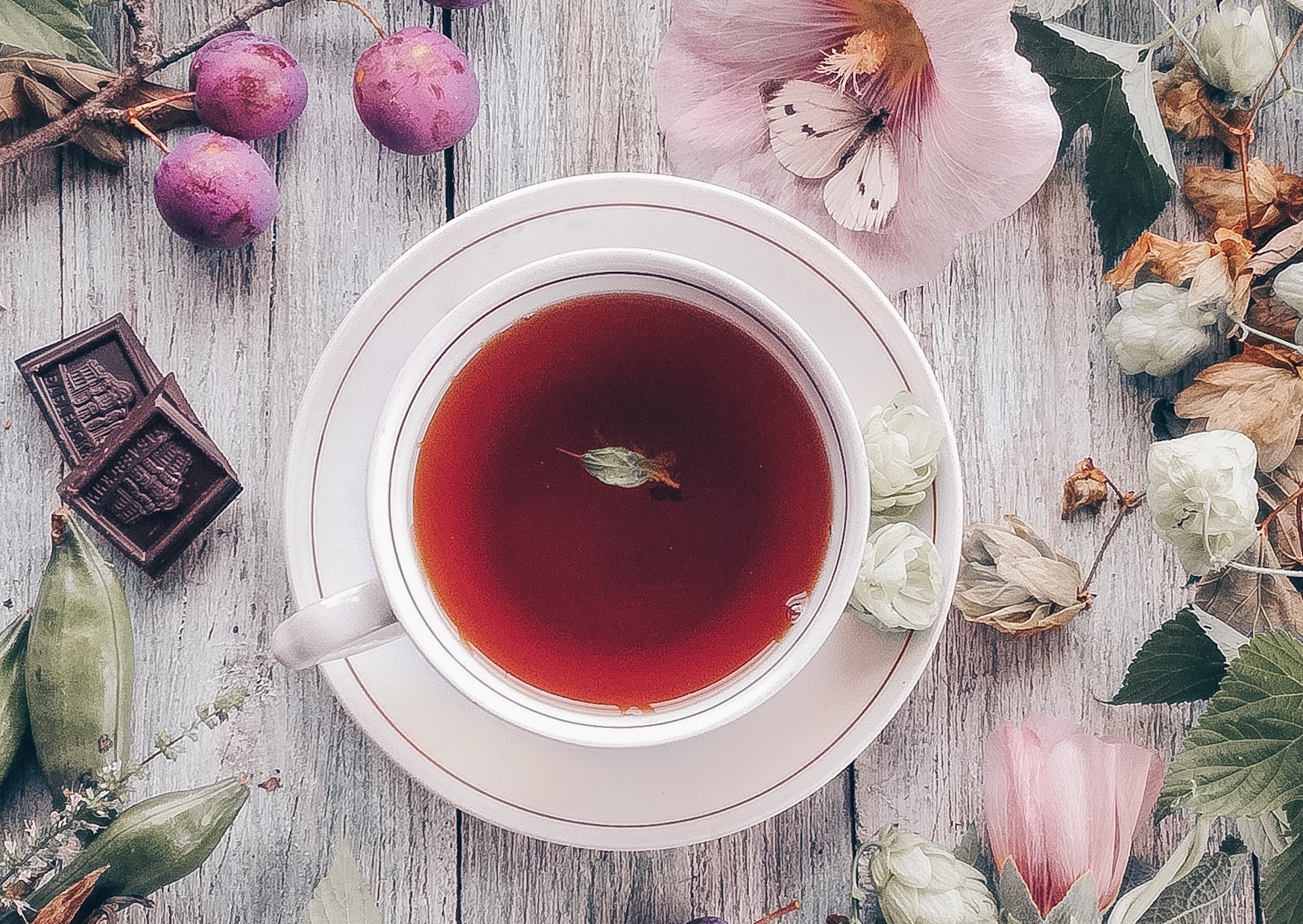Does herbal tea have caffeine?
There are many different types of tea from oolong tea to green tea to black tea, all of which are very popular and contain caffeine. Herbal teas, however, fall into a category of their own with endless herbal plants used, tasty tea blends created, and the possibility of health benefits too, they are considered as a great alternative to caffeinated tea.
That’s right for the most part, herbal tea is caffeine-free. If you’re looking for delicious brews without the kick, herbal tea could definitely be right for you, but there are some caffeine options out there for herbal tea that you should be mindful of. Don’t worry, we’ll be exploring these here in this article to help you find the perfect herbal brew for you.
So, what is herbal tea?
Despite its name, herbal tea is not technically “tea” in the traditional sense as they don’t contain the leaves or leaf buds of tea plants. Herbal teas are made from blends or infusions of dried fruits, flowers, spices, or herbs in water, commonly known as tisanes. Research has shown that tisane tea can have medicinal effects.
When buying tisane, be an informed consumer and don’t make the mistake of buying a beverage marketed as “herbal tea” with health benefits that in reality is no more than sugary juice. Always buy your tea from a reputable and professional company like Pumphreys to get authentic products.
Do tisanes have caffeine?
The large majority of tisanes don’t contain any caffeine due to being made from infusing plants that are naturally free of caffeine. Some examples of popular tisanes that are completely caffeine-free are:
- Mint (peppermint and spearmint)
- Chamomile
- Lemon balm
- Rooibos
- Rose
- Lavender
- Valerian
- And many more
If you see these ingredients in tea blends, be sure to read the full ingredients list carefully. The tea is likely to contain a small amount of caffeine if you see white tea, oolong tea, or any other true tea leaves alongside the herbs listed. When it comes to caffeine content though it is these types of tisane you need to look out for…
Yerba Mate
Yerba Mate is a South American natural tea that comes from the leaves of the ilex paraguariensis plant. It has a herbal, woody, and earthy taste and can include up to 80mg of caffeine, depending on how you brew it.
Coffee
Hear us out! Technically, coffee is an infusion because it is made by soaking the fruits from the coffee plant in water. Therefore, coffee bean tea is a caffeinated type of tisane. Coffee can have up to 96mg of caffeine per 8 ounce serving.
Guarana
Similar to Yerba Mate, this is a popular tea in South America. Guarana plant seeds can be infused with water to produce a tisane drink. There is 47mg of caffeine in 1 gram of seeds, which is around the same as a full cup of black tea.
Citrus flowers
Some citrus flowers are regularly used in cooking and herbal teas. One example is orange blossoms. There can be trace amounts of caffeine in some citrus plant flowers and leaves. Researchers have even found caffeine content in honey produced by bees that have frequented flowers in orange plantations. Although these levels are so minimal that you wouldn’t feel any of the normal effects of caffeine such as a surge in energy levels and reduced tiredness.
What are the benefits of tisanes?
Tisanes offer a range of different health benefits for the mind and body, below are a few examples of the many advantages related to drinking tisanes:
- It can boost your immune system and help protect you from diseases.
- It can help with digestion and encourage a healthy gut.
- Certain herbal teas like chamomile are known for reducing stress and promoting relaxation.
- Herbal teas can help improve your sleep quality, so you feel more well-rested.
- Relating to the previous benefit these teas can improve energy levels and boost mental clarity.
- It can help with detoxifying the body and achieving healthy skin.
As you can see, there are a lot of health benefits linked with tisanes. They are full of antioxidants and phytochemicals that have positive effects on mental and physical health.
Conclusion
In conclusion, for the most part tisanes don’t contain any caffeine, but there are a few exceptions to know about if you’re wanting to avoid caffeine beverages. Shop our range of Pumphreys tea today to find your perfect herbal brew.

 Pound Sterling
Pound Sterling
